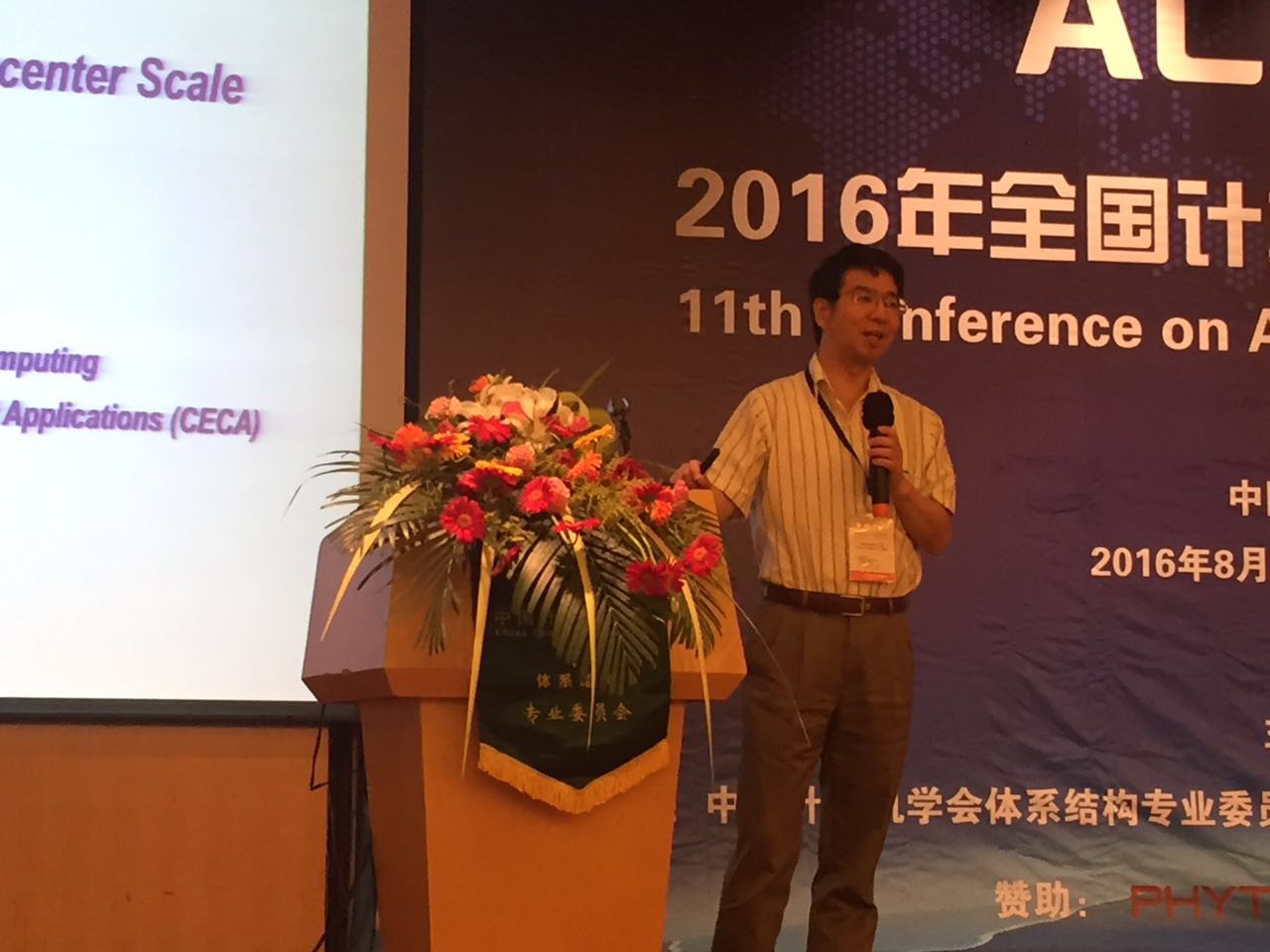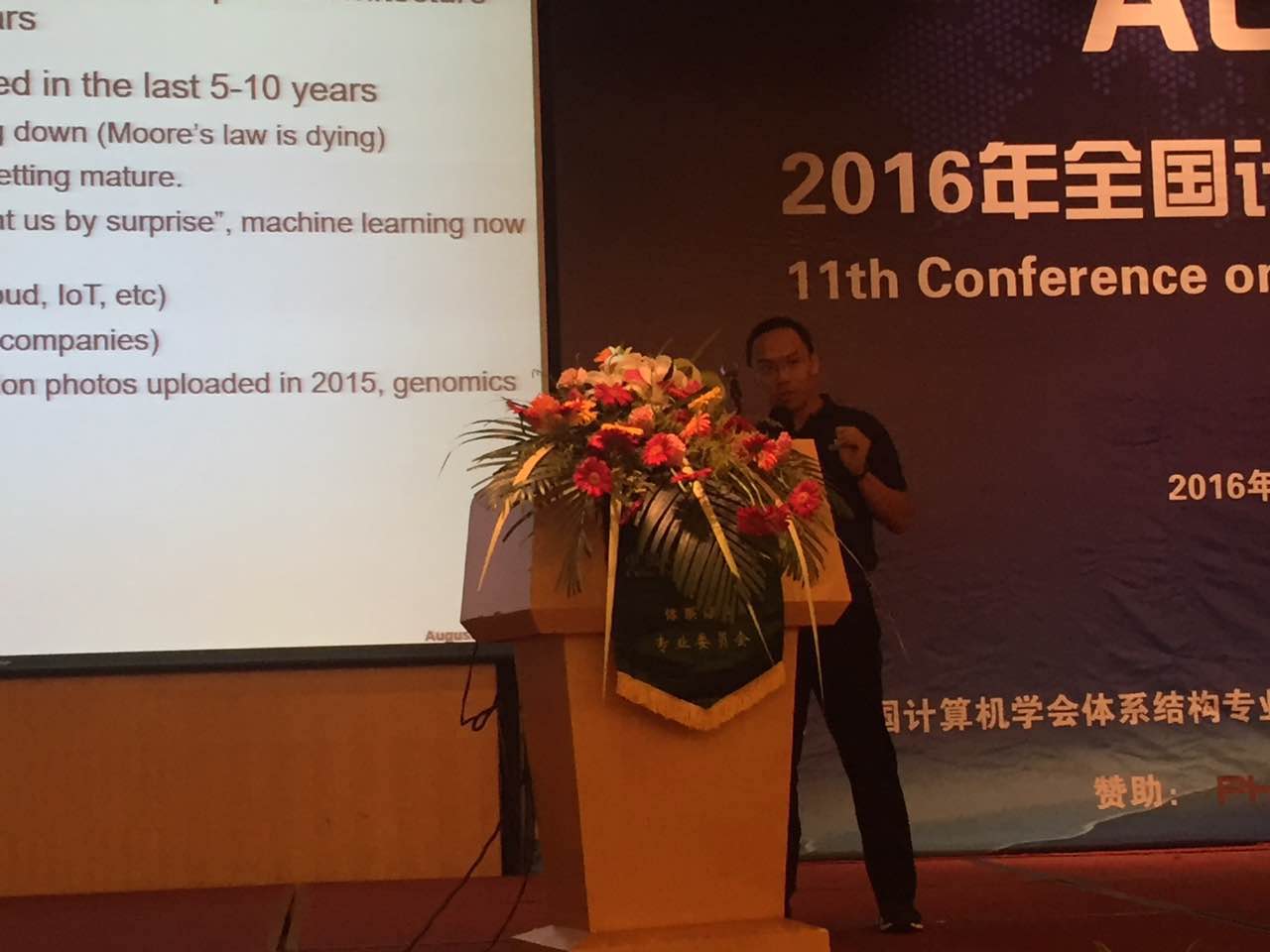The Annual Symposium of Advanced Computer Architecture (ACA 2016) was held in Weihai, Shandong on August 22-23. Prof. Jason Cong and Prof. Yuan Xie were invited to give keynote speech at the symposium. Prof. Tao Wang, Dr. Guangyu Sun, and Dr. Yun Liang gave talks on various sessions.

Title of Prof. Cong's talk: Customizable Computing --- From Single-chip to Datacenters
Abstract: In our 2008 proposal to the NSF Expeditions in Computing program, we argued that future computing systems would be customizable with extensive use of accelerators, as custom-designed accelerators often provide 10-100X performance/energy efficiency over the general-purpose processors. Such an accelerator-rich architecture presents a fundamental departure from the classical von Neumann architecture, which emphasizes efficient sharing of the executions of different instructions on a common pipeline, providing an elegant solution when the computing resource is scarce. In constrast, the accelerator-rich architecture features heterogeneity and customizaiton for energy efficiency, which is better suited for energy-constrained designs where the silicon resource is abundant. Our research program on customizable computing turned out to be very timely and impactful -- with Intel’s $17B acquistion of Altera completed in December 2015, customizable computing is going from advanced research projects into mainstream computing technologies.

Title of Prof. Xie's talk: Technology-driven and Application-driven Architecture Innovation: Past, Present, and Future
Abstract: The interaction between computer architecture and IC technology is complicated and bi-directional. Emerging technologies, such as 3D integration and new non-volatile memories, affect the decisions computer architects make, while the developments in computer architecture also influences the viability of different technologies. On the other hand, emerging applications, such as machine learning and VR/AR, also provide new drivers and pose new challenges for future architecture design. In this talk, the speaker first will review the trends in computer architecture research topics in the past 25 years, and use 3D-integration as an example to demonstrate the interaction of architecture and technology, transforming the technology from research exploration to finally commercial adoption in architecture. Then emerging NVM technology and neuromorphic computing will be discussed as examples of the influence of emerging technology and emerging application on future architecture research. As our community embarks upon the post-Moore's Law era and looks towards a post-CMOS life, technology-driven and application-driven architecture innovations will become the keys for future computer architecture research.
For more information, please visit: aca2016.tcarch.org/dates.html